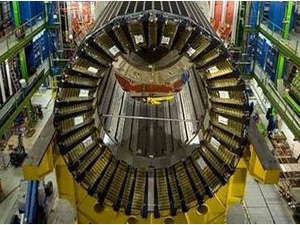



Date:23/09/11
 The European Organisation for Nuclear Research (CERN) is using software development testing vendor Coverity's Static Analysis package to test the software CERN's scientists write and use for analysing data from its Large Hadron Collider experiments.
The European Organisation for Nuclear Research (CERN) is using software development testing vendor Coverity's Static Analysis package to test the software CERN's scientists write and use for analysing data from its Large Hadron Collider experiments.
There are currently six projects analysing data produced by experiments running on the Large Hadron Collider (LHC), currently the world's biggest particle accelerator costing billions of euros, located 100 metres underground and spanning the Franco-Swiss border.
One of the biggest tasks undertaken by the LHC is the search for a theoretical particle called the Higgs boson, which could answer fundamental questions about how the universe works.
These experiments are also trying to answer other fundamental questions through particle physics. These projects all employ ROOT, a core LHC software package used by CERN's 10,000 physicists to store and analyse the petabytes of data generated by LHC's experiments.
When CERN deployed Coverity Static Analysis to check ROOT's code integrity, ROOT development team member Axel Naumann said that the physicists, "were amazed at the number of software defects unearthed by Coverity's package, 40,000 defects in 50 million lines of code."
Static analysis is the process by which software code (given to the program as a text file) is checked for possible coding errors, which could otherwise lead to malfunctioning programs giving the wrong results.
Naumann explained that, "most of the scientists write in C++ and, with that many lines of code, software integrity is a big issue. Coverity's system finds bugs which could negatively impact LHC's results and consequently the physicists' data analyses.
“ROOT is used by all 10,000 physicists, so software integrity is a major issue,” said Naumann. “A bug in ROOT can have a significant negative impact on the results of the LHC experiments and physicists' data analyses.
"Coverity Static Analysis discovers the rare, unpredictable cases that can’t be recreated in a test environment – software defects that could lead to product crashes, unexpected behavior, security breaches, or catastrophic failure," added Naumann.Coverity is a privately held company based in San Francisco.
Coverity software testing package ensures search for God Particle stays on track
 The European Organisation for Nuclear Research (CERN) is using software development testing vendor Coverity's Static Analysis package to test the software CERN's scientists write and use for analysing data from its Large Hadron Collider experiments.
The European Organisation for Nuclear Research (CERN) is using software development testing vendor Coverity's Static Analysis package to test the software CERN's scientists write and use for analysing data from its Large Hadron Collider experiments. There are currently six projects analysing data produced by experiments running on the Large Hadron Collider (LHC), currently the world's biggest particle accelerator costing billions of euros, located 100 metres underground and spanning the Franco-Swiss border.
One of the biggest tasks undertaken by the LHC is the search for a theoretical particle called the Higgs boson, which could answer fundamental questions about how the universe works.
These experiments are also trying to answer other fundamental questions through particle physics. These projects all employ ROOT, a core LHC software package used by CERN's 10,000 physicists to store and analyse the petabytes of data generated by LHC's experiments.
When CERN deployed Coverity Static Analysis to check ROOT's code integrity, ROOT development team member Axel Naumann said that the physicists, "were amazed at the number of software defects unearthed by Coverity's package, 40,000 defects in 50 million lines of code."
Static analysis is the process by which software code (given to the program as a text file) is checked for possible coding errors, which could otherwise lead to malfunctioning programs giving the wrong results.
Naumann explained that, "most of the scientists write in C++ and, with that many lines of code, software integrity is a big issue. Coverity's system finds bugs which could negatively impact LHC's results and consequently the physicists' data analyses.
“ROOT is used by all 10,000 physicists, so software integrity is a major issue,” said Naumann. “A bug in ROOT can have a significant negative impact on the results of the LHC experiments and physicists' data analyses.
"Coverity Static Analysis discovers the rare, unpredictable cases that can’t be recreated in a test environment – software defects that could lead to product crashes, unexpected behavior, security breaches, or catastrophic failure," added Naumann.Coverity is a privately held company based in San Francisco.
Views: 1929
©ictnews.az. All rights reserved.Similar news
- Analysis: New Internet rules will spawn battle for "dots"
- Global software market to bounce back in 2011
- Gartner: Top security vendors are losing market share
- UK health firm signs £1.3m deal for new financial management software
- Suspected LulzSec and Anonymous members arrested in UK
- Dutch study possible Iran hacking of government web sites
- Turkish net hijack hits big name websites
- Progress Revolution 2011: IT must focus on adaptability
- French Postal Service Implements Cameleon Software
- Microsoft targets $520bn intelligent device market with next version of Windows Embedded
- Increase in Azerbaijani software market hits 25 percent in 2011
- Microsoft shuffles execs to better manage Windows 8, smartphone ops
- Adobe Q4 profit falls 35%
- Worldwide Database and Data Integration Software Market Expected to Grow 11.6% in 2011, According to IDC





















